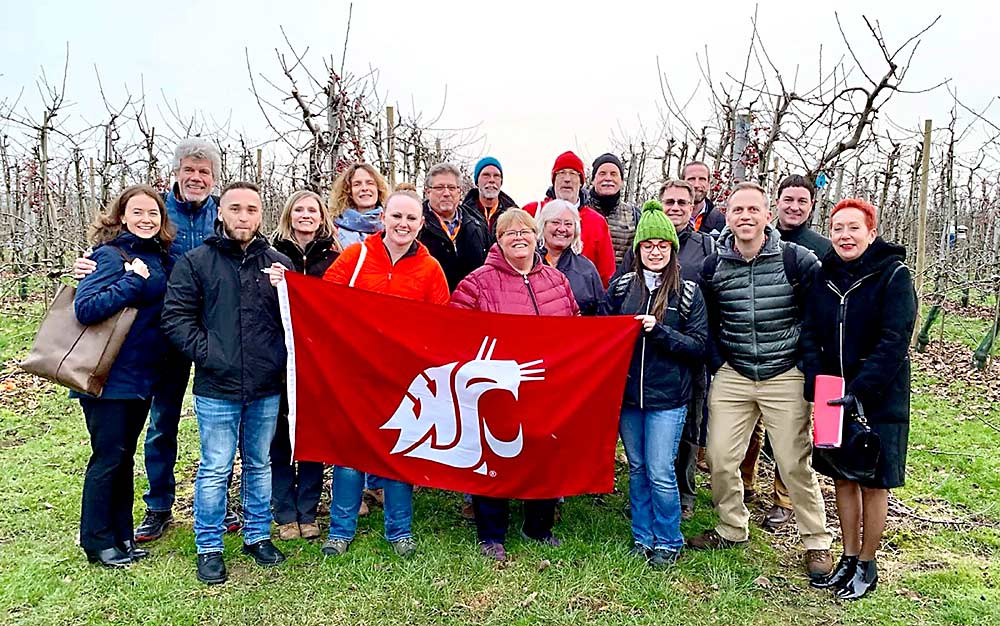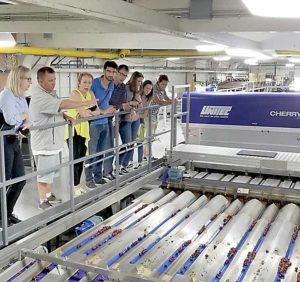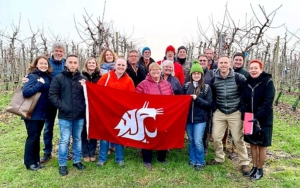
After two years of conversation and planning, this week Washington state formalized a partnership with the Netherlands to collaborate on research and technology innovation for the tree fruit industry.
In a virtual event on Feb. 3, leaders from the Washington State Department of Agriculture, Washington State University, Washington Tree Fruit Research Commission, Netherlands Ministry of Agriculture, Nature and Food Quality, and Wageningen University and Research signed the Fruit Orchard of the Future collaboration agreement. Other partners include a Dutch grower organization and private companies in both countries working in the ag tech field.
“Both Washington state and the Netherlands specialize in growing crops that require highly skilled and innovative technology solutions,” Dutch Ambassador André Haspels said in a statement. “Together, we can build food systems that are smart, sustainable and efficient.”
The collaboration started with connections formed in early 2019, when a group of Washington tree fruit industry leaders toured the Netherlands and Germany to learn about the ways those countries were approaching orchard technology — with a focus on mechanization and labor-saving automation.
“Globally, producers face many of the same hurdles,” said André-Denis Wright, dean of WSU’s College of Agricultural, Human, and Natural Resource Sciences. “The practical solutions being developed through this international coalition hold promise for more robust, healthy and efficient industries in both countries.”
The collaboration will focus on development of public-private partnerships that can get the innovations growers need through the research and development phases faster, according to Jim Doornink, who chairs the research commission.
Joint research efforts are already underway, Ines Hanrahan, executive director of the research commission, told the Good Fruit Grower. WSU scientists will be part of a research team that recently received major grant funding from the Dutch government for a project called Fruit 4.0, she said, and the commission is supporting the project as well.
Research will focus on four main areas of technology: sensing, data management, automation and orchard design.
That grant is just the first step. The collaboration should create more opportunity for leading researchers and tech developers to learn from each other, rather than duplicating efforts; establish trials with commercial growers in both regions; and leverage funding from multiple sources, according to leaders who spoke at the signing event.
An industry stakeholder group has also formed to advise the effort, Hanrahan said. She’s still encouraging growers, especially young growers interested in technology, to get involved by reaching out to the research commission.
—by Kate Prengaman








Leave A Comment